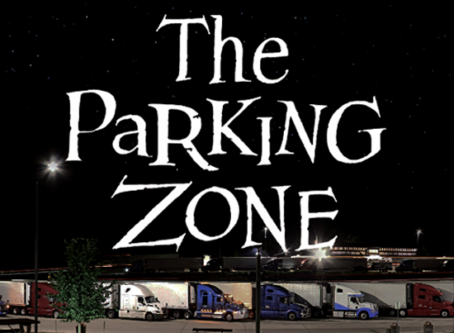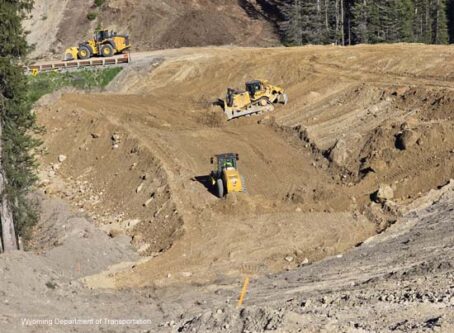State lawmakers in three states discuss autonomous truck legislation
Progress is being made at the California and Delaware statehouses to address the use of autonomous trucks on public roadways. A related pursuit is also underway in New York.
Truck platooning technology advocates say it saves fuel. They cite a reduction in aerodynamic drag, lessened traffic congestion and highway safety improvements.
The Owner-Operator Independent Drivers Association recognizes the potential for the rapid development of autonomous technology. However, OOIDA has pointed out that the technology poses challenges as it relates to commercial vehicles and highway safety.
California
The Association’s viewpoint is the basis of a California bill that is headed to the Assembly floor. The issue is not new in the state.
State lawmakers acted a year ago to send Gov. Gavin Newsom a bill to prohibit autonomous vehicle operation with a gross vehicle weight of at least 10,001 pounds for testing purposes, transporting goods or transporting passengers without a “human safety operator physically present” in the vehicle during operation.
The legislative action followed an initial public workshop by the California Department of Motor Vehicles to consider a new regulatory process to authorize the testing and deployment of autonomous vehicles exceeding 10,000 pounds.
Newsom rejected the legislation. He said regulation and oversight of the heavy-duty autonomous vehicle technology in the state was “unnecessary.” In his veto message, Newsom referred to state law that provides the DMV with authority to regulate the testing and deployment of autonomous vehicles on state roadways.
Despite the setback, Assemblymember Cecilia Aguiar-Curry, D-Winters, reintroduced her bill this year.
During recent discussion in the Assembly Transportation Committee, she told lawmakers the bill does not prevent operation of autonomous trucks in the state.
“There is nothing about a human safety operator that prevents the autonomous trucking industry from testing and deploying autonomous vehicles anywhere in California,” Aguiar-Curry told the committee.
She added that “the only conceivable motivation for rushing forward without a monitor in the cab is to increase profits at the risk of public safety and the livelihoods of our trained, expert trucking workforce.”
The autonomous truck bill, AB2286, has advanced from the Assembly Transportation and Appropriations committees. If approved by the full Assembly, it would move to the Senate.
Delaware
A pursuit in the Delaware statehouse also covers concerns about testing automated trucks without a human safety operator.
The Senate Banking, Business, Insurance and Technology Committee voted to advance a bill that would forbid the operation of an automated truck with a gross weight exceeding 10,000 pounds from operating on a state highway. The rule would apply for testing purposes, transporting goods or transporting passengers without a human safety operator physically present in the vehicle.
The Delaware Department of Transportation also would be responsible for submitting a report evaluating autonomous vehicle technology to the governor by 2029. At that point, the rule could be changed.
Committee Chairman Spiros Mantzavinos, D-Newport, told lawmakers the rule is needed to address recent safety concerns around the country for autonomous passenger vehicles, including robotaxis.
“Let’s think about passenger vehicles versus tractor-trailers,” Mantzavinos said. “At this point in time, do we want to allow that on Delaware roads?”
He added that testing could occur with a person behind the wheel.
“I am not anti-technology. At some point, I think we will get there,” he said.
Sen. Jack Walsh, D-Wilmington, added that he has reservations about greenlighting driverless trucks.
“We have to be cautious with this. I’m all for technology … but this is a job killer,” Walsh said. “There are a lot of people that drive trucks for a living. This will seriously impact that career.”
The bill, SB258, awaits further consideration.
New York
In New York, two bills cover the operation of autonomous trucks.
State law does not include a requirement for large vehicles to have a human in the cab capable of taking control of the vehicle in case of emergency.
A8621/S7758 would require operators to accompany trucks with autonomous operating technology while traveling the state’s roadways. The rule would apply to autonomous vehicles weighing more than 10,000 pounds.
Sen. Pete Harckham, D-Peekskill, said the importance of the trucking industry requires that state lawmakers be proactive and vigilant about public safety and job security when it comes to technological innovations like autonomous operating vehicles.
“The trucking industry is the backbone to middle-class social mobility, but unfortunately these good-paying jobs are under attack,” Harckham said.
Each bill is in its respective transportation committee. LL









